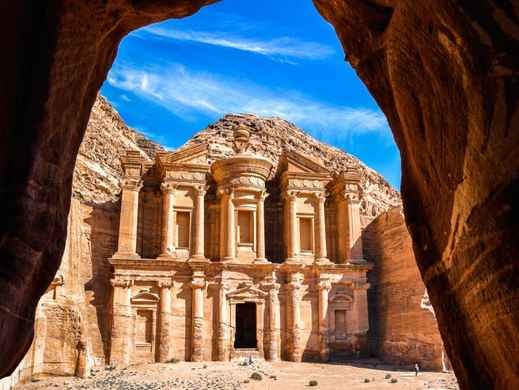


Cyprus
Asia
/
Cyprus
Cyprus, the sun-kissed Mediterranean jewel, beckons travelers with its rich tapestry of history, culture, and natural beauty. This island nation, nestled in the eastern Mediterranean Sea, boasts a captivating blend of ancient ruins, pristine beaches, and vibrant cities. Cyprus is divided into two parts: the internationally recognized Republic of Cyprus and the self-declared Turkish Republic of Northern Cyprus, recognized only by Turkey.
From the UNESCO World Heritage site of Paphos to the streets of Nicosia, the world's last divided capital, Cyprus offers a diverse array of experiences for every type of traveler. Visitors can immerse themselves in the island's fascinating past, exploring archaeological sites that date back to the Bronze Age. The legendary birthplace of Aphrodite, the Greek goddess of love, Cyprus enchants with its mythical allure and warm hospitality.
Whether you're seeking relaxation on the golden sands of Ayia Napa, hiking through the picturesque Troodos Mountains, or indulging in the island's renowned cuisine, Cyprus promises an unforgettable Mediterranean adventure. Don't miss the chance to savor local delicacies like halloumi cheese and meze, a selection of small dishes perfect for sharing.

Get to Know Cyprus
Take a tour of this destination's highlights
Popular Areas in Cyprus

Travel Tips for Cyprus
What you need to know before traveling here
Practical Tips for Cyprus
Things to prepare and best way to visit
The best time to visit Cyprus is during the spring (April to May) or autumn (September to October) when temperatures are mild and comfortable for sightseeing and outdoor activities. These seasons offer pleasant weather, fewer crowds, and lower prices compared to the peak summer months. Summer (June to August) is ideal for beach lovers but can be very hot, while winter (November to March) is cooler and may experience some rainfall, though it's still relatively mild compared to other European destinations.
Cyprus is a member of the European Union, but it is not part of the Schengen Area. EU citizens can enter without a visa for stays up to 90 days. Non-EU citizens should check with the Cyprus Ministry of Foreign Affairs or their nearest Cyprus embassy for specific visa requirements. Many nationalities, including US, Canadian, and Australian citizens, can enter Cyprus for up to 90 days without a visa for tourism purposes. However, it's always best to verify the most current entry requirements before planning your trip, as regulations may change.
Cyprus offers a wealth of attractions for visitors. Some must-see sites include the ancient ruins of Kourion, the Tombs of the Kings in Paphos, the beautiful Aphrodite's Rock, and the picturesque Troodos Mountains. The cities of Nicosia, Limassol, and Larnaca offer a mix of historical landmarks and modern amenities. Don't miss the stunning beaches like Nissi Beach in Ayia Napa or Fig Tree Bay in Protaras. For nature lovers, Akamas Peninsula National Park provides excellent hiking and wildlife viewing opportunities.
Tap water in Cyprus is generally safe to drink, especially in major cities and tourist areas. The water quality meets EU standards, and many locals drink it regularly. However, in some rural areas or older buildings, the water quality might not be as consistent. If you're unsure or have a sensitive stomach, it's advisable to stick to bottled water, which is widely available and inexpensive throughout the island.
The official currency of Cyprus is the Euro (€). As a member of the Eurozone, Cyprus widely accepts and uses euros in all transactions. Credit and debit cards are also commonly accepted in most establishments, especially in tourist areas. However, it's always a good idea to carry some cash for smaller purchases or in more rural areas. ATMs are readily available in cities and tourist spots for cash withdrawals.
See All Practical Tips for Cyprus

Get to Know Cyprus

Travel Tips for Cyprus
More Destination Near Cyprus
















 Facebook
Facebook Instagram
Instagram TikTok
TikTok Youtube
Youtube Telegram
Telegram
